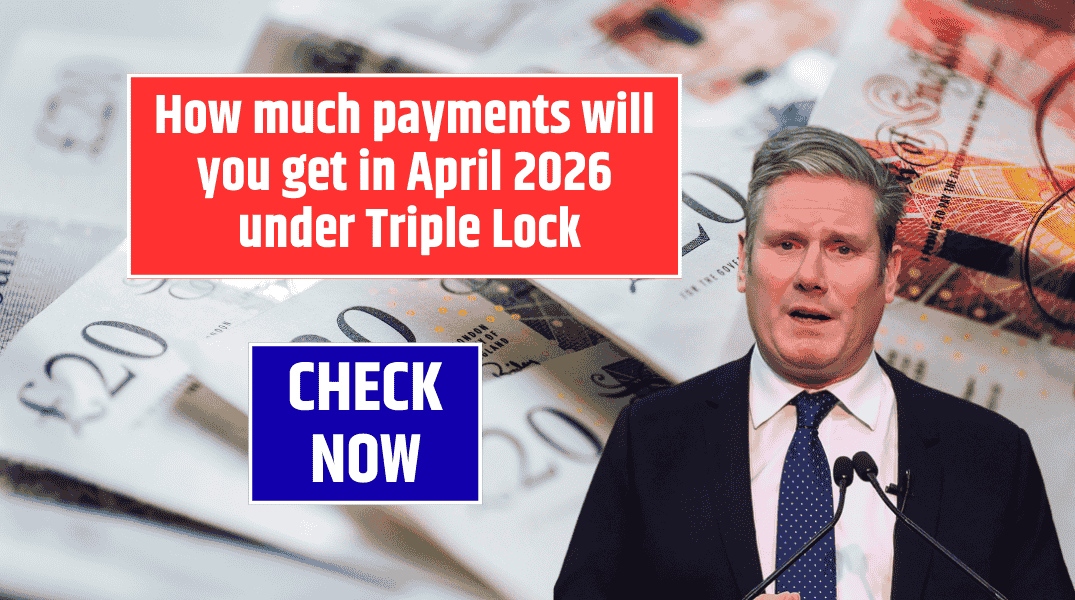UK state pensioners saw a 4.1% rise in April 2024, thanks to the triple lock system. Now, many are looking ahead to see how much payments might increase again next year. Finance experts say wage growth could play a big role in the 2025 State Pension increase, but inflation still remains a wild card.
What Is the Triple Lock?
The triple lock is a promise from the UK government that State Pension payments will rise every April by the highest of three figures:
- 2.5%
- Average earnings growth
- Inflation (CPI)
This system is designed to protect pensioners’ income and make sure their payments keep up with the cost of living.
What Could Influence Next Year’s Increase?
Currently, the average earnings growth stands at 5.5% (measured from January to March 2024), while inflation (CPI) for the year to March 2024 is 2.6%. Since earnings are higher, they are the most likely factor to determine the 2025 increase — unless inflation rises again later this year.
Wage Growth May Lead the Way
Matthew Parden, CEO of Marygold & Co., said wage growth is still strong, mainly due to a tight labour market and high demand for workers in both public and private sectors. This strong earnings data makes it more likely that average earnings will determine next year’s pension rise.
However, he also warned that inflation could spike again, especially if:
- The value of the pound weakens
- Global conflicts affect supply chains
- Food or energy prices rise suddenly
If this happens around September 2024 — when the key CPI inflation figure is recorded for the triple lock — inflation could still become the deciding factor.
Other Expert Opinions
Mark Pemberthy, from Gallagher, agreed that wage growth seems the likely driver right now. But he also warned that the situation could change. While inflation is low for now, it remains unpredictable.
He pointed out that Labour’s support for the triple lock during this Parliament offers short-term security for pensioners, but the long-term future of the policy may face challenges due to its cost to taxpayers.
In 2023, the triple lock used inflation as the highest figure, leading to a record 10.1% pension increase due to the previous year’s high prices.
What About Inflation?
Even though inflation is easing, experts say we shouldn’t rule it out. Pemberthy noted that forecast earnings growth in 2025 is around 3.5%, meaning a sudden rise in inflation could still beat it and become the deciding factor for the pension rise.
Will Stevens, from Killik & Co, also shared his view. He believes either earnings or the 2.5% minimum will likely be used for next year’s increase, unless inflation spikes sharply before the September CPI reading.
He also reminded pensioners that even with increases, it’s wise to save for future care costs. He suggested looking at low-risk investments such as government or corporate bonds, but stressed that investment decisions should always be made based on personal risk levels and financial goals.
Pensioners can expect another rise in April 2025 under the triple lock, with current trends pointing towards earnings growth being the key driver. However, things could still change depending on inflation levels later this year. Either way, it’s a good idea to stay informed, use official pension forecast tools, and start planning for your financial future — especially if you’re nearing retirement.
FAQs
What is the triple lock for state pensions?
The triple lock ensures state pensions rise each April by the highest of 2.5%, inflation, or average earnings growth.
How much did the state pension increase in 2024?
State pensions increased by 4.1% in April 2024 based on the triple lock system.
What is expected to decide the 2025 pension increase?
Experts believe average earnings growth, currently at 5.5%, will likely drive the 2025 increase unless inflation rises sharply.
When is the key inflation figure recorded for the triple lock?
The September CPI figure is used to help decide the state pension increase for the following April.
Should pensioners consider saving or investing?
Yes. Experts recommend low-risk investments or savings to prepare for later life expenses, especially for care costs.
